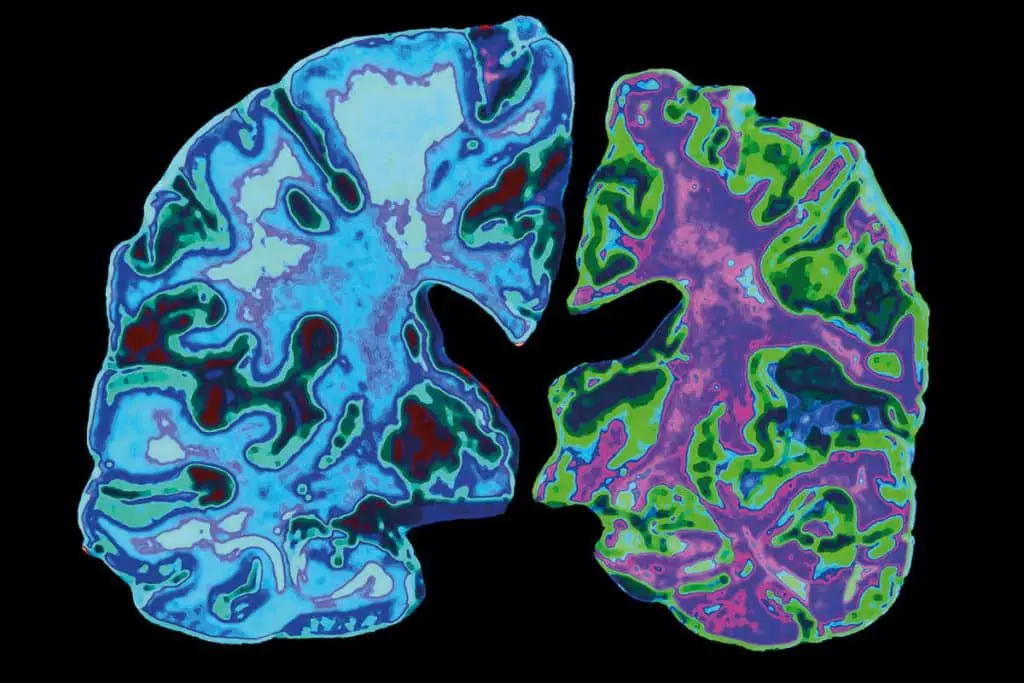Two sick people Alzheimer’s (DA), Cici Zerbe and Simon Nicholls, say they beat the deadly disease with simple lifestyle changes. The couple detailed their trip to a CNN documentary The Last Alzheimer’s Patient.
Defeating Alzheimer’s by changing your lifestyle: is it possible?
Dementia andAlzheimer’s have been the leading killers in the UK over the past decade, accounting for 11.4% of deaths in 2022. While new drugs may reduce the progression of the disease, more evidence is emerging that something as simple as incorporating a healthy lifestyle can “reverse” Alzheimer’s symptoms.
Alzheimer’s disease can be divided into two subgroups, familial and sporadic. Only 5% of patients with AD are familial, hereditary, and 95% of patients with AD are sporadic, due to environmental, lifestyle, and genetic risk factors. Consequently, the most effective tactic to deal with AD is prevention and a healthy lifestyle. This has led researchers to study the risk factors associated with Alzheimer’s.
Zerbe experienced a reversal of symptoms after participating in a clinical trial in the United States. The study explores the effects of intensive lifestyle changes on mild cognitive impairment or early dementia due to Alzheimer’s disease. The study has not yet been published.
Lifestyle changes include switching to a plant-based diet, regular exercise, group support sessions, yoga, and meditation. Zerbe said she feels “much better” than she did before participating in the study, five years ago, when she was diagnosed with the disease.

Simon Nicholls, 55, is another person with Alzheimer’s who appears in the CNN documentary and who took part in the trial. Nicholls carries two copies of a genetic variant called ApoE4, which is known to significantly increase the risk of Alzheimer’s. However, after adopting healthy lifestyle changes, Nicholls noticed dramatic improvements in his symptoms.
About 25% of the population carries at least one copy of the ApoE4 gene variant (called an “allele”), and 5% carry two copies. Carrying an ApoE4 allele is associated with a three- to four-fold increased risk of developing AD. Carrying two copies increases your risk up to 12 times, making it the largest genetic risk factor for Alzheimer’s.
These statistics amplify the extraordinary and noteworthy nature of Nicholls’ accomplishments in reversing Alzheimer’s symptoms simply through his lifestyle choices. His AD biomarkers disappeared in 14 months, which is significantly more effective than most AD treatments.
Nicholls emphasized the importance of physical activity and dietary changes in his journey. He was initially prescribed tirzepatide, a drug designed to suppress appetite by regulating blood sugar levels. He also incorporated regular exercise, including strength training three times a week, walking 10,000 steps a day and jogging or cycling every morning.
Cardiovascular disease is an important risk factor and potential future predictor of Alzheimer’s disease. The heart-brain connection is critical for supplying brain cells with energy and oxygen through cerebral blood flow. Therefore, poor heart health could increase the risk of Alzheimer’s as brain cells receive less energy to function. This explains why Nicholls’ improved heart health and increased cardiovascular activity improved his symptoms.

He also imposed dietary changes – cutting out sugar, alcohol and processed foods – and embraced the Mediterranean diet.
The Mediterranean diet is rich in antioxidants, which protect brain cells from damage, and research suggests that nutrients gained from the diet help maintain memory and cognitive abilities. A recent in-depth study of 60,000 British citizens showed that following a Mediterranean diet reduces the risk of dementia by 23%.
Nicholls has also implemented good sleep hygiene to try to improve his irregular sleep patterns, as some studies show that sleep deprivation is linked to Alzheimer’s.
The dominant theory is that toxic proteins, such as amyloid, can be cleared from the glymphatic system during sleep. These would otherwise accumulate and cause dementia. However, it should be noted that a recent study in mice calls this theory into question.
Scientists at Imperial College London found that toxin elimination was actually reduced during sleep, suggesting that sleep may reduce the risk of dementia through other currently unknown mechanisms.
These lifestyle changes had significant effects on Nicholls’ life. In just nine weeks, she lost nearly 10kg and 80% of her body fat and reduced her fasting blood sugar levels.

Nicholls and Zerbe likely “reversed” their Alzheimer’s symptoms. This is because conditions such as obesity, hypertension, cardiovascular disease, high cholesterol and insomnia are all risk factors for dementia and can be modified through a healthy lifestyle.
It is important to interpret these results with caution. These are just the results of two people involved in the study. Without the specifics of the claimed outcomes, it is difficult to determine whether these lifestyle choices truly “reversed” the progression of the disease.
The effect of lifestyle on cognition is gaining attention, and more and more scientists are studying its benefits. Combining the advent of new disease-modifying drugs with rigorous lifestyle changes can significantly reduce the symptoms and progression of Alzheimer’s.
#Alzheimers #reverse


